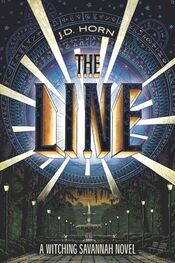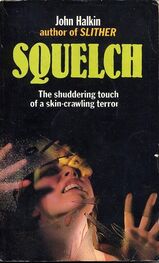Vera said she didn’t work in the house but she was part of it, like the hall stairs or the potting shed. She didn’t talk very much but she was most interesting to study. She had wiry gray hair, and she’d been alive so long that her whole body was slowly shrinking, except for her nose, which grew instead and became slightly redder and more bulbous as time went by. Vivi said that Vera’s nose was sucking the life out of the rest of her body for its own independent growth. Sometimes another little lump would appear, or an aberrant gray hair an inch or so long as if it had arrived overnight already at full length. Maud would laugh when Vivi pointed out these things—Vivi was always making Maud laugh—although she said that she’d be Very Cross Indeed if either of us mentioned it in front of Vera as it was “a condition.” It was as if Vera’s face was in a constant state of flux, perhaps weather dependent or in response to what she’d eaten the day before.
The way we got around a diminishing staff was an evolving fluidity in the volume of the house throughout the year, a constant expansion and contraction, like a lung. In the most bitter winter weeks, we’d lock up the extremities and retreat to the inner sanctum, huddling in the heart of the building—the kitchen, the study and the library—where the fires could be kept continuous.
When we were children, Vivi and I were inseparable. When she went to play in the stream, scour the ridge for mushrooms, collect acorns for the farmers’ pigs, turn the apples for cider or go scrumping in the next-door village, whatever the pursuit, I’d go too. Our parents liked us to stay together. Sometimes Maud would check when she saw one of us setting out. “Have you got Ginny?” or “Are you with Vivi?” she’d shout, often out of a window from a higher level of the house. And if she ever saw Vivi set out without me she’d call her back, even the times I didn’t want to go: “Will you take Ginny, please?” and I’d feel I ought to go along for Maud’s sake. Vivi was always the leader, even though she was younger: She’d have a plan, a contingency plan and an emergency strategy. But I’d be right there, next to her, following her every move.
So, the day we went up the bell tower for the last time, of course it had been all Vivi’s idea. She was eight and I had just turned eleven. We’d crept up there after breakfast with a piece of toast each that we’d been saving, luxuriously spread with our mother’s famous loganberry jam. It was Vivi’s favorite place.
“We’re going to ask Vera if she’s seen a stray cat we fed yesterday,” Vivi told Maud at the table.
“With your toast?” Maud had asked.
“No, we’ll eat it before we get there,” Vivi said, as we rushed out of the kitchen.
“See? Told you it would work,” my little sister gloated when we reached the second pantry unrecalled. The second pantry, where Maud stored her cheeses, hung her meat and dried her gourds, was also the start of the secret set of back stairs. Halfway up the stairs was a little oak door, one where even I, at eleven years old, had to stoop slightly to get through. It had a hole you put your index finger through to lift the latch on the other side. From there was a steep oak staircase, unlit except for a shaft of natural light that coursed down from the top, tumbling the dust in its path. It was a magnet for a child like Vivi—any normal, imaginative child, in fact—and at the top was a little wooden platform open to the air and a small turret, surrounded by a low stone parapet.
The turret had a peaked wooden hat held up by wooden posts, all painted a kind of limey green, and hanging from its apex was a beautiful, dainty, blackened brass bell. A thick, furry, red-and-white striped rope, like an enormous piece of the sweets the American soldiers used to give us (they called it candy), hung from a brass hoop on top. It was just too thick for either of us to connect our thumb and fingers when we gripped it, and it disappeared through a hole in the wooden platform, ending up in the back passage on the ground floor beyond the pantries. It was on this platform, under this bell, in our own little turret, that we found just enough space for two small children to dream. Truth be told, it was Vivi who dreamed and I who listened, enraptured, for I was very aware that it was a gift that she’d been given and I had not. We’d go there when Vivi wanted to plot her next adventure or scheme her next scheme. Just sometimes I’d offer her a little idea, and just sometimes, not often, she’d latch upon it to help her see through the puzzles in her head. And I’d feel ever so slightly triumphant.
Vivien was from a fantastic world, definitely not the same one as mine. I thought when God made Vivi he was giving me a window to see the world in a different way. She lived out her dreams and fantasies in our house or in the woods behind it, or in the eleven acres of meadow that stretched out down to the brook. She spent hours meticulously planning her life—and mine.
“Ginny,” she’d start, “you promise, cross your heart hope to die, not to tell anyone?”
“Promise,” I’d say. I’d cross my heart with my right hand and I’d mean it.
I never tired of Vivi’s company, and I always took her side, even against Maud. Vivi might have been able to make our mother laugh, but she knew how to infuriate her too. (I never argued with Maud, but I rarely laughed with her either.) After they’d had a row Vivi would storm off in an uncontrollable temper and Maud would send me to try to comfort her. Often I’d find her sobbing with such abandon that I truly believed that even the little things sent her mood spiraling downwards, that they really affected her. When she was young she couldn’t control her emotions, swinging easily from good temper to bad.
So, if I hadn’t been there, squatting in the bell tower with her, I might have thought she’d jumped. But I saw how she’d slotted herself into a huge crescent-shaped stone, which made up part of the low parapet round the platform. For Vivi, it was an irresistible place to perch. She was making herself comfortable while holding her toast level in her left hand. I remember saying that I didn’t think she should be there, that it looked too dangerous, and just as she said, “Ginny, don’t be so bor-ing” a pair of martins, scouring the eaves for a nest site, startled out from underneath her little ledge. My heart leapt but Vivi must have lost her balance. I watched her trying to regain control of the toast that danced about, evading her grip like a bar of soap in the bath. For those slow seconds it seemed as if repossessing the toast was of utmost importance to her and that she was losing her balance didn’t register. I’ve never forgotten the terror in her eyes, staring at me, replayed a thousand times since in my nightmares, as she realized she was falling. I didn’t see her grabbing the bell, but she must have stretched out for it as she went, because it rang and the echo of that strike gave to me a resounding significance, a lifetime of noise. As I looked over the edge I saw her lying, not on the ground, three long stories below, as I’d imagined, but hanging motionless over the battlements that run above the porch. Later, they said the algae, recently proliferated because of the first few warm days of spring, had made the ledge more slippery than usual.
Peculiarly, she didn’t die. Or, rather, she died and came back again. Two ambulance men in red and black jackets carried her limp little eight-year-old body, full of plans for our future, on to a stretcher and down a wooden ladder from the top of the porch. But I was watching her all the time and I remember the moment she died; while she was on that stretcher I actually saw her Entire Future give up the struggle to survive and leave her, and at the same time I felt my own future reduced to a dead and eventless vacuum, a mere biological process.
Читать дальше





